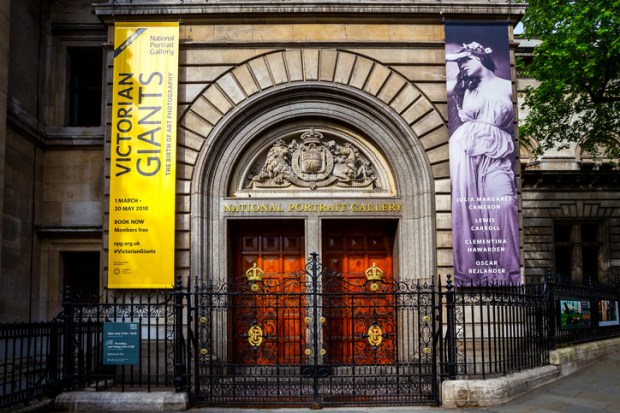We have a long experience of dealing with hate crime in Britain. In 1958 nine Teddy boys armed themselves with chair legs and iron bars and set about tormenting any black men they could find in Notting Hill. They were caught and brought before Mr Justice Salmon. The judge was taking no nonsense: he sent them down for a stiff four years apiece, adding these simple words: ‘Everyone, irrespective of the colour of their skins, is entitled to walk through our streets in peace with their heads erect and free from fear.’
Yesterday’s very sensible report from the government’s Commission on Race and Ethnic Disparities showed a similar exemplary approach to the subject. ‘Everyone,’ it succinctly stated, ‘no matter their background, should be able to live their lives without fear of becoming a victim of a hate crime… There is no place for hate crime, and when it occurs, communities need to see action being taken to address it.’
The simplicity of this idea, and the generality of the words ‘no matter their background’, are important. The Commission is obviously writing in the context of race and ethnicity. But by seeing race as one of the many features forming the complex web of British society, the logic is of general application. The Commission is simply accepting and restating a clear truth. Any crime committed where the offender sees you as different, or as someone who doesn’t fit in or accept some orthodoxy, needs to be taken very seriously by the state. This is because it infringes one of the most vital rights you can have in a liberal society: the right to be left alone to live your life as you choose.
After 63 years, this point should be self-evident. Unfortunately, in the last two decades it has not been seen as obvious at all. To the contrary: it has been fairly consistently rejected by a legal system increasingly taken up with identity politics and a tendency to view society in terms of interest groups to be placated rather than individuals to be safeguarded. Instead of robustly and even-handedly safeguarding everyone’s right to be left alone to pursue their aims as they wish – with stiff sentences against people who attack others because of who they are or what they think – the law has repeatedly taken the view that protection of that kind should only be given to those belonging to particular selected groups. It began with racial and religious communities in 1998, but it has since added to the list ad hoc, normally as a result of political pressure. Sexual orientation and disability were added in 2003, and transgender status in 2012. If you are outside this charmed circle, then however vicious the prejudice or hatred towards you personally or the community you belong, that’s bad luck: it’s just an ordinary offence.
This process of selective protection seems to have establishment approval. Last year’s hate crime proposals from the Law Commission, for example, specifically tossed out the idea that increased sentences should be imposed without discrimination for all crimes motivated by dislike for the victim’s group or characteristics, apparently on the basis that protection of this sort should be limited to groups that can show they suffer communally from crimes directed towards their members. Indeed the Law Commission then went on to build on the existing scheme, suggesting adding yet more protected categories such as sex and gender, and actually asked readers to say if they thought these should be joined by other communities such as sex workers or members of alternative subcultures, such as Goths.
This way of looking at things is unfortunately ingrained among lawyers and academics. But it is clearly at odds with the enlightened approach of yesterday’s report. It remains to be seen whether the government will follow through on the latter, and pursue it to its logical conclusion; namely, to ditch the legal approach of the last 20 years and simply state that any crime should be regarded as aggravated if shown to be motivated by dislike towards a particular characteristic of the victim.
It certainly ought to do so. It is difficult to think of anything much more divisive and destructive of social harmony than a legal system that lists a number of groups within the community, occasionally adds to them as a result of political pressure, and then says that any criminal act done with malice towards a member of this magic circle is automatically taken as an aggravated offence. The point becomes starker if we view the question from the point of view of an individual victim. If two schoolchildren are beaten up while walking home, one because he is Chinese and one because he is a teacher’s pet, there is something seriously wrong from the point of view of equality if the thug who did it receives an increased sentence in the first case but not in the second. Certainly the latter’s confidence in the even-handedness of the legal system is not likely to be helped if he is told that although his injuries are exactly the same, the person who caused them is somehow less deserving of punishment.
He would, one suspects, be far more confident were he to hear the end of Mr Justice Salmon’s sentencing remarks in the case of the Teddy boys, which should serve as a beacon for any Home Secretary today: ‘As far as the law is concerned you are entitled to think what you like, however foul your thoughts; to feel what you like, however brutal and debased your emotions; to say what you like, provided you do not infringe the rights of others or imperil the Queen’s Peace. But once you translate your dark thoughts and brutal feelings into savage acts such as these, the law will be swift to punish you, and to protect your victims.’ The Commission on Race and Ethnic Disparities, one suspects, could not have put it better had it tried.
<//>
Got something to add? Join the discussion and comment below.
Get 10 issues for just $10
Subscribe to The Spectator Australia today for the next 10 magazine issues, plus full online access, for just $10.



















Comments
Don't miss out
Join the conversation with other Spectator Australia readers. Subscribe to leave a comment.
SUBSCRIBEAlready a subscriber? Log in